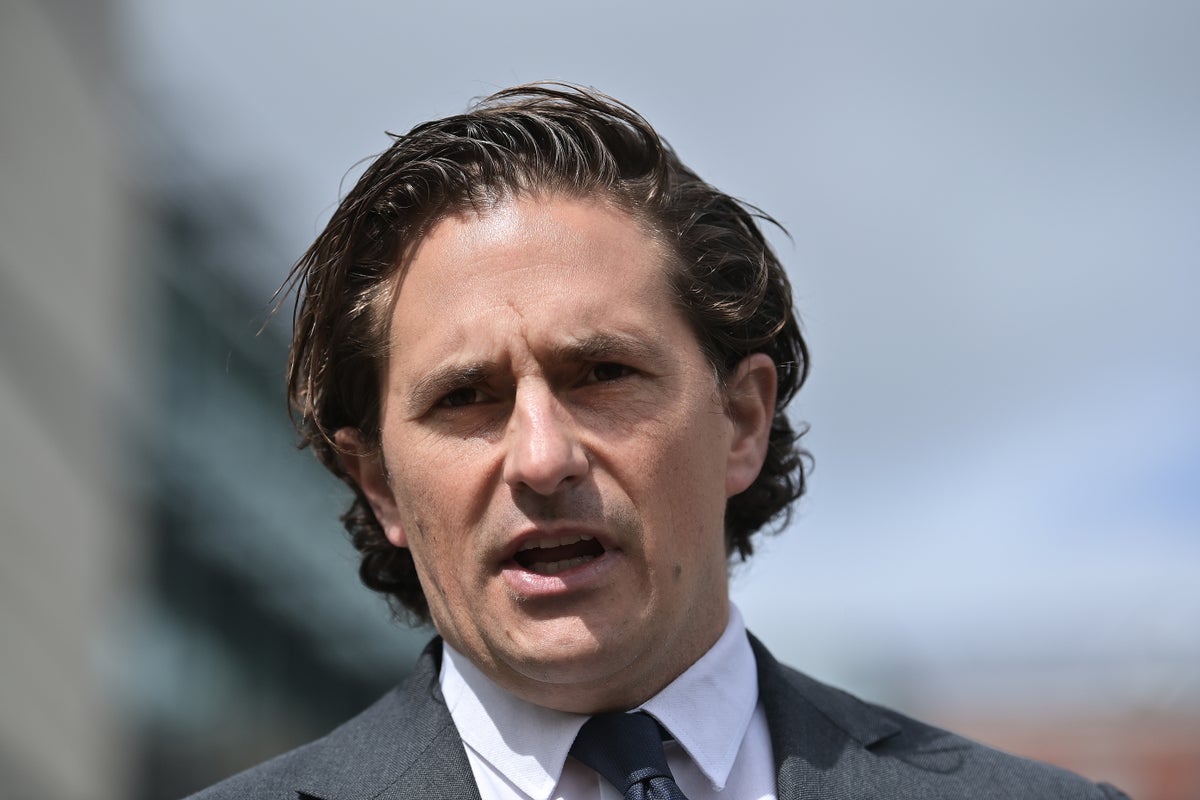
Tory minister Johnny Mercer has insisted that an end of August deadline to remove Afghan refugees from hotels will be met – despite warnings it will be missed.
The veterans minister said officials “working round the clock” to help with the process of moving Afghan out of hotels into more suitable accommodation – despite thousands having to declare themselves homeless to the local council.
The government has been criticised for giving eviction notices to all 8,000 Afghans – brought here under resettlement schemes after the chaotic evacuation of Kabul – who remain living in the so-called bridging hotels.
One in five Afghan refugees had already declared themselves homeless by the start of August, according to the Local Government Association.
It comes as a former Afghan air force pilot was finally granted asylum this week after a long-running campaign by The Independent – but now has just 28 days to find somewhere to live before he is evicted from a hotel and Home Office support is removed.
Top military figures and politicians have said it would be “tragic” to allow Afghan veterans to fall into destitution – calling it an “abrogation of our obligation” to allies promised a new life in Britain.
Asked if the government had met its responsibility to those who worked with UK forces, Mr Mercer told Times Radio on Sunday: “I think we are seeing that now through an incredibly generous relocation scheme.”
The minister added: “By the end of this month we will have closed the hotels, because they not a place of permanent accommodation for these Afghan families.”
He also told Sky News that there is a “very, very tiny number” who have “not accepted accommodation” – but insisted that “nobody is sleeping rough, nobody will sleep rough”.
Mr Mercer said that finding accommodation “has been an incredibly difficult situation to deal with”, two years on from the evacuation of Kabul and commitment to help those who worked with British forces.
The minister added: “I recognise people want to give the government a good kicking on this,” before claiming that the effort to get people out of hotels and into permanent homes had been “mischaracterised”.
However, Peter Marland, the Labour leader of Milton Keynes Council, told The Independent that around 30 of the 55 Afghans in hotels in the area had declared themselves homeless.
Some had been moved from Milton Keynes to areas such as Watford and Milton Keynes – where they were then then placed in hotels again. “It’s been chaotic, and we’ve had no rhyme or reason from the Home Office on what they want to do,” he said.
Councillor Marland said: “Some have had to move children from one school, so the disruption has all been a bit sad.”
Afghan refugees in Leeds hotels prepare to meet Prince William in 2021— (Getty Images)
The government has given councils £285m to speed up the resettlement this month. With Thursday’s deadline looming, the Sunday Times also reported that many were set to be left in hotels amid the desperate scramble for long-term accommodation.
Zabi Niazi, 41, told the newspaper that he had made a homelessness declaration this month after no housing offer arrived. The Afghan-British national said he had been offered yet more “bridging” accommodation in a B&B in Peterborough.
At the start of August, more than 6,000 Afghans reportedly remained in hotels, with the push for accommodation forcing some councils to turn to the expensive private sector or move people to the other end of the country in recent weeks.
Stephen Robinson, the Liberal Democrat leader of Chelmsford City Council, told The Independent that one family in a hotel had to be moved more than 400 miles from Essex to Inverness in the Scottish Highlands.
“It’s a travesty because some had jobs locally and had children in schools here, but now we’ve had to uproot them because of the Home Office deadline,” said the council leader.
It comes as Mr Sunak comes under pressure to fulfil his “stop the boats” promise and vow to crack down on bogus asylum claims.
A new poll has found that almost two thirds (63 per cent) of Tory Leave voters say the Sunak government is doing a bad job on asylum seekers and immigration. Some 47 per cent said the government is trying “not very hard” or “not hard at all” to deal with the issue, according to the Public First survey.







